[Posted 3rd October 2008, 6.48am, by Stephen Pirie]
One of the simplest methods for recognising the first key principle of life is by observing ourselves in relation to our families, our community, and our planet.
A whole community of people will consist of individual persons. However, no individual person within a family, local or global community can, by themselves, constitute the whole family or the whole community.
On the other hand, a community without people is not a community. A family without family members is clearly not a family.
The first Key Principle of Life, for Life (KPLL) No. 1: The Community-As Principle voices this individual-community (or part-whole) nature of life as follows:
You, by yourself, do not make an entire community (of people). But neither are you entirely not the community (for a community without people is not a community). You are the Community-as-You.
We may apply this Community-as Principle to our bodies. Your heart, and other bodily organs, by themselves, do not entirely compose your whole body. However, a body without any organs is not a body. Accordingly, your heart is your body-as-your-heart.
This principle may be expressed in many ways, and is the first key principle.
In general terms, individual parts (organs, people) that comprise a whole (body, community) can be described as being the whole-as-that-part (organ, individual).
Any part is always a part of some greater whole, which in turn is a part of the whole of All.
If we consider the extent of this progress of ever greater groupings of parts –that we are part of planet Earth, which is part of the Solar System, which in turn is part of the universe– we may reasonably say that we are the Universe-as-Us. Without people, particles, planets or solar systems there would be no universe. Likewise, without a universe, there would be no particles, people, planets or anything.
If we consider this progress within a religious context, God cannot be anything less than the whole of All, which includes each of us. Accordingly, the first key principle can be restated in religious terms as: We are God-as-Us. We, by ourselves, are not God, but neither are we entirely not-God (as this would require that we were outside or beyond the whole of All). We are, quite unavoidably, God-as-Us.
Irrespective of what you believe about God, and even if you believe there is no God, taking God to mean the whole of All, you are necessarily God-as-You. In religious terms, we may restate Key Principle No. 1 as The God-As Principle: You are God-As-You. You are the Whole-as-You.
Since the community within which we live is personally relevant to each of us – that is, one’s community may be different to someone else’s community – we can only speak from a personal perspective. And when we realise that whatever we perceive is always through the lens of our personal thoughts, feelings and beliefs, we may restate the God-As Principle as follows:
Key Principle of Life, for Life No. 1:
The Interdependence of One and All*
have interdependent validity, reality and purpose.
Howsoever any whole (community, company or God)
is experienced or perceived, we are necessarily
the combinate whole as us.
{Examples}
You are your family-as-you;
You are your community-as-you;
You are your city-as-you;
You are your organisation-as-you;
You are this planet (Earth)-as-you;
You are this universe-as-you;
You are your god-as-you.
Key Principle of Life, for L ife No 1 affirms that whatever we experience is due to conscious choices and actions in concert with nonlocally-interconnected unconscious systems.
ife No 1 affirms that whatever we experience is due to conscious choices and actions in concert with nonlocally-interconnected unconscious systems.
At no time and in no circumstance can we expect this principle to fail, for to do so would require a meaningless disconnect between a part and some greater whole. To find exceptions to this principle would require some part to be outside, or independent of, All. Additionally, to assign independence of volition, action or existence to some entity (e.g. "God") independent of our own volition, actions, existence and responsibility requires a disconnet that is contrary to this principle. It would also require violation of Heisenberg's Uncertainty Principle.
 In view of our limited conscious knowledge (at any point in time), we will be unable to entirely understand this principle. It will have implications that might appear absurd, even though the principle itself is consistent and congruent with life. For example, the Community-As Principle when restated as the God-As Principle, affirms that “you are your individual limited self while being the unlimited whole of All (God)”.
In view of our limited conscious knowledge (at any point in time), we will be unable to entirely understand this principle. It will have implications that might appear absurd, even though the principle itself is consistent and congruent with life. For example, the Community-As Principle when restated as the God-As Principle, affirms that “you are your individual limited self while being the unlimited whole of All (God)”.
KPLL No. 1 affirms that - in principle - we have latent within ourselves all those potentials and abilities normally ascribed to God and Evil, but that - in practice - we are constrained by the local and nonlocal systems within which we exist.
We cannot assign responsibility to God or to "God's Will", independent of our choices, desires, actions and responsibilities. We are conjointly responsible for the reality experienced. We are not justified in assigning blame or responsibility to independent forces, physical or meta-physical. The God-As Principle affirms there are no victims in fundamental terms, only those who deny, ignore or avoid accepting their God-As responsibilities and potentials to conjointly create their desired circumstances.
Some implications of Key Principle of Life, for Life No. 1:
-
Everything, everyone and every event has meaning. For this this not to be the case requires a disconnect from One and All, from parts and wholes.
KPLL No. 1 extinguishes the 'silliness of science' of there being no meaning to life, 'random' events and mutations.
- Evolutionary impetuses are imbued with meaning. 'Random mutations' appear random due only to our failure to recognise and appreciate an underlying interconnectedness, imbued with meaning and purpose.
- As we learn, so too God; As we fail, so does God; As we do, so too God, the community and this universe; As we hate, so too God; As we love, so too God.
* Otherwise known as The Holographic Principle, The Theory of One and All or variously as The Table of One and All, The Tao of One and All, and The TOA.
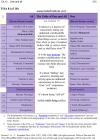
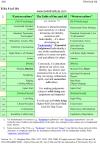
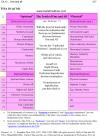
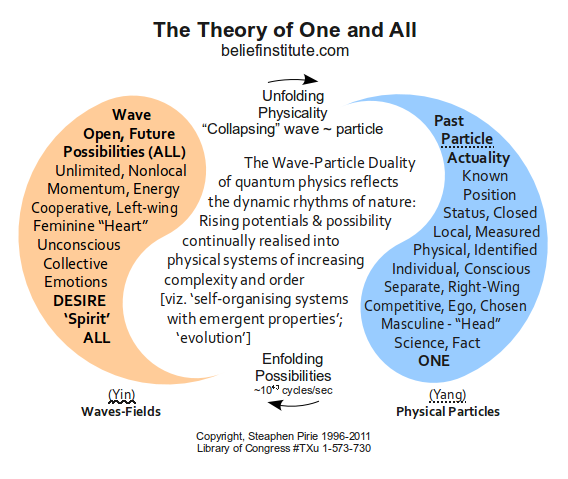
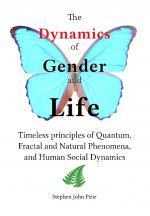 "The Dynamics of Gender and Life" ebook is now available at
"The Dynamics of Gender and Life" ebook is now available at